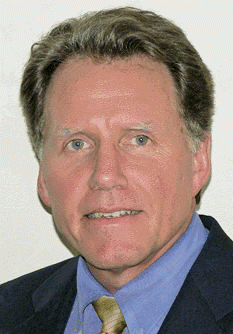Mark Richardson, MD, Chairman of the Department of Otolaryngology-Head and Neck Surgery and Dean of Oregon Health and Science University School of Medicine, said that Congress will have to find cost savings in the health care system, but doing it at the expense of specialists will not succeed. The idea of budget neutrality has inflamed the specialty societies, he said. He pointed out that one solution to augmenting the PCP ranks is taking place by increasing the number of osteopathic physicians. Dr. Richardson suggests that DOs represent a substantial pool of primary care doctors, and that their training may make them more amenable than graduates of allopathic medical schools to careers in primary care.
Explore This Issue
September 2009 There need to be sweeping changes in training, practice, organization, and incentivizing primary care doctors and even some specialists. Communities must support their doctors because, nationally, they are competing for both primary care and specialists.
There need to be sweeping changes in training, practice, organization, and incentivizing primary care doctors and even some specialists. Communities must support their doctors because, nationally, they are competing for both primary care and specialists.-Mark Richardson, MD
A 2007-2008 survey of graduating seniors by the American Association of Colleges of Osteopathic Medicine bears him out. The percentage of 2000-2001 through 2007-2008 osteopathic graduates planning to specialize in general internal medicine, family practice, and general pediatrics increased by 2.7% among 2000-2001 graduates and 7.2% for the most recent graduating class. Osteopathic school graduates are more likely than allopathic graduates to embrace a career in primary care; one-third do so, versus one-fifth of their allopathic medical school peers. In the 2007-2008 survey, when asked what factors most influenced their choice of specialty, osteopathic school graduates who chose primary care cited liking to deal with people, whereas those opting out of primary care were statistically more likely to cite these factors for their career choices: intellectual content of the specialty, prestige/income potential, emphasis on technical skills, and medical debt level.
Dr. Richardson said that even an important incremental change such as an influx of osteopaths into primary care won’t fix the problem. There need to be sweeping changes in training, practice, organization, and incentivizing primary care doctors and even some specialists. Go to a city of 80,000 people, and its hospitals desperately need specialists, particularly surgeons. Communities must support their doctors because, nationally, they are competing for both primary care and specialists, he concluded.
A Slippery Slope?
Muddying the waters is the growing number and influence of nonphysicians with doctoral degrees, whose legitimate use of the Doctor title might lead patients to make incorrect assumptions about their levels of training and scope of practice. Advanced practice nurses, nurse practitioners, and physicians’ assistants all now have curricula leading to the doctorate, and it may not be too far in the future when practitioners without the doctorate are grandfathered into licensing. Another serious blow to physicians’ positions may be granting nonphysician practitioners, such as audiologists, direct access to patients rather than via physician referrals. This is a work in progress, and whether there will be state versus federal regulation about access to patients remains to be seen, said Dr. Nielsen. We support a collaborative team approach to sharing care of our patients.
Leave a Reply